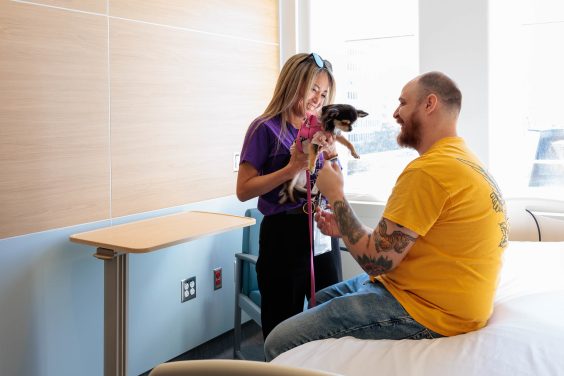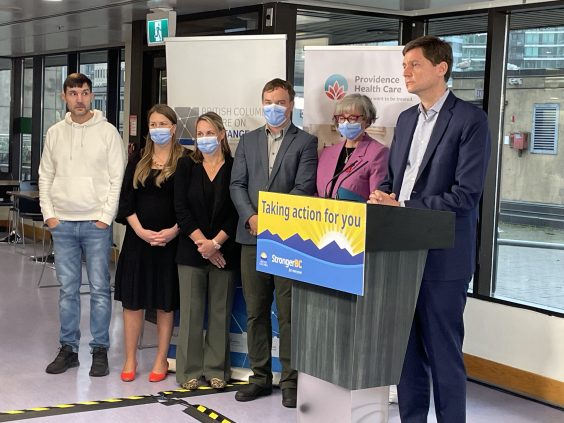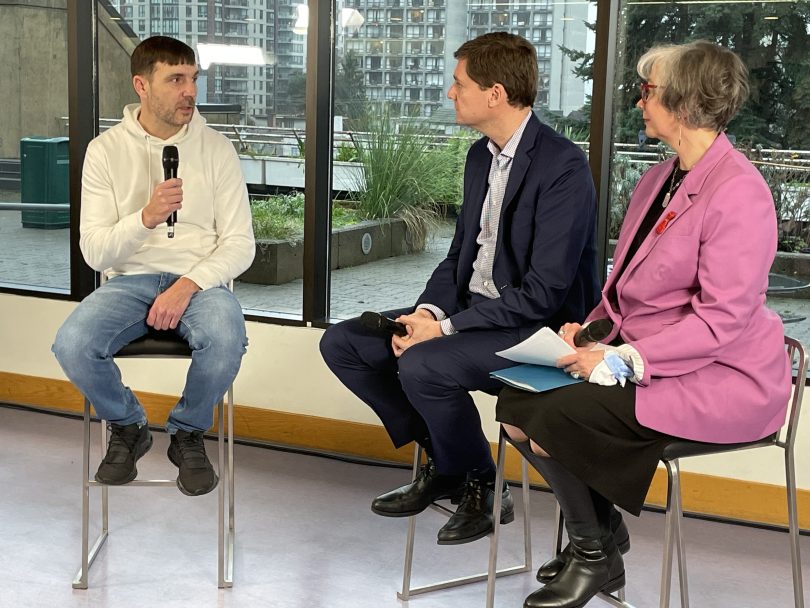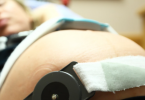People with addiction challenges are getting better, seamless treatment and recovery care through the new Road to Recovery initiative at St. Paul’s Hospital in Vancouver. “The moment a person living with addiction chooses to reach out for help, they need to be met with support, not left waiting for services,” said Premier David Eby, who made the announcement at St. Paul’s Hospital today. “Now, patients will receive seamless support through detox, treatment and recovery, all from one dedicated health-care team at St. Paul’s Hospital.”
Program addresses gaps in addictions care
Long-standing gaps in addictions care have left people and their families unsure of where to turn or what to do next.
Through Road to Recovery, people will receive seamless services through each stage of detox, bed-based care and recovery, and outpatient treatment, all from the same clinical team as well as connections to ongoing health and social supports. The initiative has launched in Vancouver and will expand to other
regions in the province.
Jennifer Whiteside, Minister of Mental Health and Addictions, says: “Through these enhanced connections to care, more people will be able to move through their recovery journey, knowing a dedicated care team is there for them every step of the way.”
New data shows 94 people have benefited from life-changing care through the Road to Recovery initiative, using 34 beds that began operating in fall. When fully implemented in March 2025, Road to Recovery will operate 25 detox beds, 20 transition beds and 50 treatment and recovery beds in a seamless continuum of care.
Window to seek help is small
“The window for a person to want recovery support can be very small,” says Ian Haynes, peer co-ordinator at Road to Recovery. “There were so many times I was ready to get help, but when I reached out for treatment, I was told I needed to wait for days, weeks, sometimes months. By the time the date would come, my priorities would have changed. I wouldn’t care anymore, so my substance-use disorder would continue. It’s great that now people can access Road to Recovery services when they are ready and can get help in a more streamlined way.”
The 34 beds in operation include 14 detox beds at St. Paul’s Hospital, opened in September 2023, and 20 transitional care beds in the community, opened in October 2023.
Evidence-based care
“This milestone represents the important first step toward making evidence-based addiction care more accessible to people when they need it,” says Dr. Seonaid Nolan, addictions-medicine physician, Providence Health Care.
“Addiction-medicine clinicians, like myself, know that being able to refer someone to the appropriate service and then provide follow-up care is integral to supporting their wellness. The opening of the first phase of the Road to Recovery is the realization of our vision of a full continuum of substance-use care within a single setting at St. Paul’s Hospital that will make that ongoing care possible.”
As part of the Road to Recovery model, people living in Greater Vancouver can call Access Central, a phone line for adults seeking withdrawal-management services/detox and receive a clinical assessment and same-day substance-use care referral from a physician and/or nurse.
Initially announced in March 2023, Road to Recovery is a partnership between the BC government, Providence Health Care, Vancouver Coastal Health and the BC Centre on Substance Use to address gaps in the system, allow people to access care more effectively and to remove barriers as people transition to different services.
Transforming addiction care

“The Road to Recovery initiative is an opportunity to transform how addiction care is delivered in this province,” says Cheyenne Johnson, executive director, BC Centre on Substance Use. “Through ongoing research and evaluation, it will ensure accessibility of the full continuum of substance-use care, one that is co-ordinated, accessible, seamless and evidence-based, and closes the gaps that currently exist between prevention, harm reduction, treatment and recovery.”
The Road to Recovery initiative is part of the work to expand treatment options for people living with mental-health and substance-use challenges and it is an integral part of the government’s work to address the toxic-drug crisis in B.C. Through Budget 2023, the Province invested $1 billion to urgently increase and facilitate access to mental-health and addictions care, including early intervention and prevention, harm reduction, treatment and recovery services, and complex-care housing.

Todd Hoggard, who received treatment at Road to Recovery, says “I came in with a lot of pain with my drug addiction. It goes along with my chronic pain. Coming in the door, I said that I would give it another shot. I came into the Rapid Access Addiction Clinic at St. Paul’s Hospital looking for help. That same day, I was here in a bed, which is something entirely new. Usually it’s ‘Call back in a month.’”
Quick Facts:
- The Province is providing $23.7 million in annual funding for the operation and monitoring of the Road to Recovery model and the expansion of the initiative to other regions across the province as part of Budget 2023.
- As of June 2023, there are 3,277 publicly funded adult and youth community substance-use beds.





